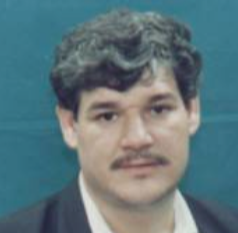- Category: Open Letters
MR. OLIVIER DE FROUVILLE
Chairperson
United Nations Working Group on Enforced or Involuntary Disappearances,
Geneva, Switzerland.
Esteemed Chairperson and Members of the UN WGEID,
We, the Council Members of the Asian Federation Against Involuntary Disappearances (AFAD), would like to bring to the attention of the UN WGEID the issue of continuous denial of travel documents to Mr. Parvez Imroz, AFAD Council Member representing the Association of Parents of Disappeared Persons (APDP) in Kashmir, India and his colleague Mr. Zahir-ud-Din, who is also member of the association. As you are fully aware, the AFAD has been continuously campaigning against the phenomenon of enforced disappearances in whole Asia. In the course of our work for truth, justice, reparation, redress and memory, our member-organizations are actively engaged in participating in conferences, workshops and meetings organized in different countries.
- Category: Statements
All Souls’ Day, also known as Day of Remembrance of the dearly departed, is commemorated mostly by Catholics all over the world every 2nd day of November. Literatures describe it as a day of “solemn feast”[1], of visiting the tombs of loved ones in the cemetery where prayers are offered along with fresh flowers and lit candles. It is a day characterized as a collective activity where families and friends gather together to remember the dearly departed. Other cultures make the occasion festive with food, colorful altars with photos of the dead and other memorabilia.
Countries where Catholics are the majority, like the Philippines and Timor Leste, declare All Souls’ Day a national holiday so that relatives can visit their loved ones in the cemeteries. All Souls’ Day is also called differently by many languages. The Czechs call it “Commemoration of All the Departed”[2]. Other cultures refer to it as Day of the Dead, translated as Día de los Muertos[3] for Mexicans, Halottak Napja for Hungarians and Dia de Finados for Brazilians. Poles regard All Souls’ Day as zaduszki, a day when all the windows and doors are opened to welcome the spirits of the dead[4].
- Category: Press Releases
Committee on Enforced Disappearances Participates in an Event Organized by the Working Group on Enforced or Involuntary Disappearances
The Committee on Enforced Disappearances participated this morning in an event marking the twentieth anniversary of the Declaration on the Protection of All Persons from Enforced Disappearance, which was organized by the Working Group on enforced or involuntary disappearances to explore best practices and challenges to protect women from enforced disappearances.
Opening the event, Kyung-wha Kang, Deputy High Commissioner for Human Rights, acknowledged the particular impact of enforced disappearances on women and said that it was important not to consider women solely as victims; many had played a central role in the fight against enforced disappearances and in bringing this heinous phenomenon to the attention of the international community.
- Category: Statements
AFAD Statement on the 22nd Anniversary of the Monument of the Disappeared in Sri Lanka
The Asian Federation Against Involuntary Disappearances (AFAD) conveys its solidarity with the families, relatives and friends of the disappeared in Sri Lanka during its 22nd commemoration of remembering and honoring the disappeared at the Monument of the Disappeared in Seeduwa-Raddolugama junction, District of Gampaha (Western Province). This gathering is an important occasion for the relatives and friends of the disappeared to seek strength from each other in their continued search for truth and justice for their disappeared loved ones.
This is also an occasion to remind the government of President Mahinda Rajapaksa of his duty to protect the human rights of its people amidst continuing rampant cases of disappearances in the country. The President, in the late 1998, was then the Minister of Fisheries. As guest speaker of the gathering of the disappeared, he made a promise at The Monument that when he becomes President, disappearances will not be allowed. Obviously, this promise has been totally forgotten. Worse still, he was one of the champions of the disappeared and their families during the disappearances of the late 80s and the early 90s when he co-founded the then Organization of Parents and Family Members of the Disappeared (OPFMD). Ironically, during his administration as president of the country, disappearances continue unabated with each passing day.
- Category: Statements
A Huge Step Towards Ending Impunity
The Philippine Congress has made a huge step in instituting legal measures for better human rights protection as conferees from both chambers of the Philippine Congress ratified on 16 October 2012 the bicameral report on reconciled bill which will very soon become the Anti-Enforced or Involuntary Disappearance Act of 2012.
The Asian Federation Against Enforced Disappearances (AFAD), a regional federation of human rights organizations working directly on the issue of enforced disappearances in the Asian region, hails the firm resolve of the members of the Philippine Congress for finally heeding to the call of the families and relatives of the victims who, for almost two decades, have been lobbying the Philippine Congress to criminalize and penalize the act of enforced disappearance and eventually put an end to this odious practice.
- Category: Statements
The Asian Federation Against Involuntary Disappearances (AFAD) warmly congratulates the members and staff of Odhikar on your18th anniversary celebration! Your steadfast commitment in campaigning for justice, human rights and participatory governance despite constant threats is an inspiration to all of us!
Odhikar is the newest member of our Federation. For more than a year, it has, in no small measure, contributed to the strengthening of the Federation’s capacity to bring the voice of the victims of enforced disappearances in Asia before their respective governments and the international community. Its consistent in-depth reporting on human rights violations; its relentless advocacy for the cause of the disappeared and its extensive national, regional and international network are a source of inspiration to other members of our Federation in realizing our common vision to attain a world without disappeared persons.
- Category: Statements
 On 10th October 2012 Odhikar marks its 18th anniversary. The day also happens to be the International Day against the Death Penalty1. As a human rights organisation Odhikar has been campaigning for justice and fair trial; and against the death penalty since its inception.
On 10th October 2012 Odhikar marks its 18th anniversary. The day also happens to be the International Day against the Death Penalty1. As a human rights organisation Odhikar has been campaigning for justice and fair trial; and against the death penalty since its inception.
Established against the backdrop of the fall of the military dictatorship and restoration of democracy; Odhikar became a powerful network of human rights defenders in Bangladesh and earned its reputation as the unwavering watchdog of the people’s right to liberty, justice and participatory governance. Odhikar’s core commitments to uphold human rights and the rule of law; and to ensure people’s rights against discrimination, exploitation and impunity remain as relevant today as they were on the day of its initiation. Odhikar’s struggle started in 1994 and continues unabated. Needless to say, the condition under which the organisation is operating today is more challenging than eighteen years ago with the State becoming increasingly repressive.
- Category: Press Releases
 Geneva -- The United Nations Human Rights Committee recently condemned Algeria in a case of enforced disappearance. In May 1996, Mr. Kamel Rakik, 33 years old, was arrested at his home, around 30 km from Algiers, by policemen of Algiers’ Wilaya. He was brought to the Chateauneuf Police officers school where he was tortured. He has not been seen since.
Geneva -- The United Nations Human Rights Committee recently condemned Algeria in a case of enforced disappearance. In May 1996, Mr. Kamel Rakik, 33 years old, was arrested at his home, around 30 km from Algiers, by policemen of Algiers’ Wilaya. He was brought to the Chateauneuf Police officers school where he was tortured. He has not been seen since.
The Rakik family left no stone unturned in the quest to discover the whereabouts of their beloved ones. The case has been brought before all relevant judicial and administrative authorities. Yet no investigation has been opened and no one has ever been prosecuted.
In its decision, the Human Rights Committee holds that, because of the disappearance of Kamel Rakiki, Algeria breached several provisions of the International Covenant on Civil and Political Rights (one of the most important international conventions within the United Nations system), including the right to life and the right to be free from torture and other forms of ill-treatment. In doing so, Algeria also inflicted upon the family members of the disappeared person an inadmissible treatment through the severe mental distress and anguish they were forced to endure.
